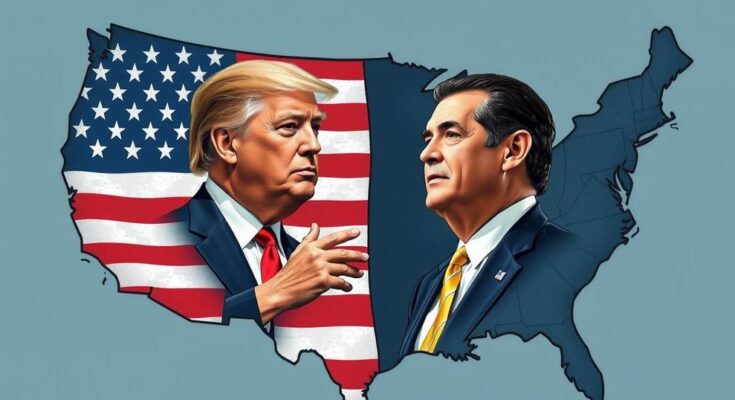Jimmy Carter’s presidency and Joe Biden’s current administration exhibit striking parallels, particularly in the face of economic instability, geopolitical tensions, and public distrust in government. Challenges such as the Iranian hostage crisis and ongoing conflicts in the Middle East reflect persistent vulnerabilities in U.S. leadership. Both presidents grapple with the limits of American power while attempting to restore public confidence and enact effective policies.
The enduring challenges confronting the United States today bear a striking resemblance to those encountered by former President Jimmy Carter during his administration from 1977 to 1981. Despite the passage of over four decades since Carter left office, issues such as economic instability, geopolitical tensions, and domestic disillusionment underpin the complexities faced by current President Joe Biden. The crises that characterized the late 1970s, including inflation, energy shortages, and diminished faith in government, echo in today’s political landscape, underscoring how persistent and multifaceted these adversities remain.
Carter navigated a myriad of difficulties, culminating in a notable crisis of confidence among the American populace. His administration grappled with economic challenges, international crises, and the evolving dynamics of U.S. foreign policy. The Camp David Accords, heralded as a diplomatic victory, were shortly overshadowed by discontent at home and perceived failures abroad, exemplified by the Iranian hostage situation that led to his electoral defeat in 1980.
Similarly, President Biden faces parallels in international relations, particularly with the withdrawal from Afghanistan and the ongoing conflict in the Middle East. His administration’s attempts to forge stability have been met with limitations reflective of Carter’s experiences. Moreover, Biden’s efforts in rallying support for Ukraine against Russian aggression highlight a renewed focus on foreign alliances, yet the prolonged nature of these geopolitical conflicts raises concerns regarding U.S. resolve and efficacy.
Domestic challenges, including inflation and environmental crises, further link both presidencies. While Biden’s economic policies aim to mitigate inflation and transition to renewable energy sources, the public sentiment remains strained. Just as Carter experienced a decline in public trust, Biden similarly navigates a skeptical electorate that views government efficacy with increasing doubt. Carter’s acknowledgment of this sentiment in 1979 remains relevant: “Our people are losing that faith, not only in government itself but in the ability as citizens to serve as the ultimate rulers and shapers of our democracy.” Such crises of confidence continue to permeate political discourse today.
Carter’s legacy is often marked by a blend of humility and the subsequent humanitarian work that defined his post-presidency, contrasting sharply with Biden’s current political climate and challenges. The electoral landscape and the contentious nature of political discourse highlight an evolving American experience, one where the cautionary lessons of the past remain ever pertinent.
The backdrop of this article examines the historical context of the presidency of Jimmy Carter, whose term was marked by significant challenges that resonate with contemporary issues faced by President Joe Biden. The late 1970s were characterized by economic turmoil, international crises, and a palpable decline in public trust in government. In particular, the Iranian hostage crisis and the failure of U.S. foreign policy underscored the limits of American power at that time. The article draws parallels between the domestic and foreign challenges of both administrations, exploring the legacies and current realities that affect both leaders.
In conclusion, the similarities between the challenges confronted by Presidents Carter and Biden illuminate the cyclical nature of American political crises. Issues of economic instability, trust in government, and the complexities of foreign policy reveal persistent vulnerabilities within the U.S. political landscape. The historical lens provided by Carter’s presidency serves as both a warning and a guide for navigating the intricate dynamics of governance and international relations faced by contemporary leaders.
Original Source: www.bbc.com




